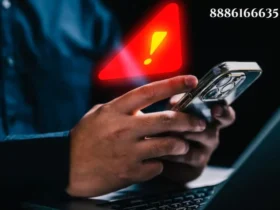Introduction
Every so often, a string of numbers pops up that makes people pause, scratch their heads, and wonder: what on earth does it mean? Enter 35255060455—an oddly specific number that seems ordinary at first glance but quickly becomes fascinating the moment you start digging deeper.
Could it be a code? A secret message? A lost identifier from some forgotten system? Or is it simply… just a number? Well, the truth isn’t as simple as it looks. In fact, numbers like this often carry layers of meaning, from mathematical quirks to cultural associations and even speculative mysteries.
In this article, we’ll take a deep dive into 35255060455, unpacking its possible significance, spinning imaginative theories, and exploring how such random-looking strings can capture our attention. Buckle up—it’s going to be a surprisingly engaging ride!
Why Do Numbers Like 35255060455 Catch Our Attention?
It’s not every day you stumble across an 11-digit sequence and immediately feel intrigued. Yet, numbers often tug at our curiosity because:
-
They look like codes. Humans are natural puzzle-solvers. A long number instantly makes us think it must represent something.
-
Patterns speak louder than words. Even without math training, our brains notice repeating digits, symmetry, and rhythm in numbers.
-
Mystery sells. A number without context feels like an unfinished story—and who doesn’t want to know how the story ends?
Breaking Down the Digits of 35255060455
Let’s play detective for a second. If we zoom into the sequence, do any patterns leap out?
-
35 – Could be an age, a jersey number, or even part of a regional code.
-
2550 – Looks suspiciously like a year, but in the far future. Imagine the world in 2550!
-
604 – Often tied to area codes (for example, Vancouver, Canada).
-
55 – A classic “double-digit” number that pops up everywhere, from speed limits to symbolic numerology.
When strung together, these clusters paint a picture of something deliberate, even if random at first glance.
Possible Interpretations of 35255060455
Now comes the fun part: exploring what 35255060455 might mean.
1. A Secret Identifier
It could belong to a massive database—think product IDs, government archives, or hidden catalog entries. Somewhere, this number could unlock a record or file that’s been sitting unnoticed.
2. A Mathematical Curiosity
Mathematicians love to play with big numbers. Maybe 35255060455 holds some hidden mathematical properties—like being divisible by a curious prime, or forming a neat pattern when written in another numeral system.
3. A Message in Disguise
Some believe long numbers like this are coded transmissions. With the right cipher, could it spell out a name, phrase, or location? (If Hollywood has taught us anything, it’s that mystery numbers always lead to something exciting!)
4. Just a Coincidence
Of course, it’s also possible that there’s absolutely nothing “special” about it. But where’s the fun in that? Humans thrive on meaning-making, and numbers like this give us the perfect canvas.
The Cultural Pull of Random Numbers
It’s not just 35255060455—we’ve always been fascinated by random-seeming digits. Think of:
-
Pi (3.14159…) – Infinite and mesmerizing.
-
The Golden Ratio (1.618…) – Beloved by artists, architects, and mathematicians.
-
Mystery sequences like 4 8 15 16 23 42 from the TV show Lost.
In many ways, 35255060455 joins this tradition of numbers that beg us to decode them.
35255060455 in a Hypothetical World
Let’s indulge in some imagination: what if 35255060455 wasn’t random at all?
-
In a sci-fi novel? It could be the coordinates of a hidden planet.
-
In a thriller? It’s the passcode that opens a vault of world-shaking secrets.
-
In a love story? Maybe it’s the number on a scrap of paper that connects two people across time and space.
By giving a number a story, it instantly transforms from “just digits” to something unforgettable.
Why Humans Love to Decode Numbers
Ever wondered why we can’t resist treating a number like 35255060455 as a riddle? It comes down to:
-
Curiosity bias: Our brains crave answers to incomplete puzzles.
-
Pattern recognition: We evolved to spot patterns for survival, and now we apply it to everything—even random strings.
-
Playfulness: There’s joy in making meaning where none may exist.
In short, numbers give us a sandbox to play in, even when there’s no “correct” answer.
FAQs About 35255060455
Q1: Is 35255060455 a phone number?
Not exactly—most phone numbers aren’t this long. But in international formats, it could resemble one.
Q2: Could 35255060455 be a bank account or tracking number?
Possibly, but without context, there’s no way to tell. It’s the kind of length that financial systems might use.
Q3: Does 35255060455 have symbolic meaning?
On its own, no. But humans are great at attaching symbolism—like breaking it into 35, 2550, 604, and 55.
Q4: Can this number be used in numerology?
Absolutely. Numerologists often add up digits to find “core numbers.” Here, 3+5+2+5+5+0+6+0+4+5+5 = 40, which reduces to 4. In numerology, 4 often symbolizes stability and structure.
Q5: Is it possible that 35255060455 is just random?
Yes, but that doesn’t make it any less interesting. Randomness itself is often mesmerizing.
The Broader Lesson Behind 35255060455
Here’s the kicker: the real fascination with 35255060455 isn’t in its actual meaning (or lack thereof). It’s in how we respond to it. Numbers like these are mirrors, reflecting our curiosity, creativity, and desire to impose order on chaos.
Whether we’re breaking it into chunks, imagining it’s a code, or spinning stories around it, what we’re really doing is flexing the most human muscle of all: imagination.
Conclusion
So, what have we learned from our deep dive into 35255060455? For one, numbers—even the most random-looking ones—carry an undeniable magnetic pull. They invite us to speculate, theorize, and invent.
And while 35255060455 may never reveal a grand hidden secret, its true power lies in the fact that it made us pause, wonder, and imagine. Sometimes, that’s all a number needs to do.
Next time you stumble upon a strange string of digits, don’t just shrug it off. Instead, ask yourself: What stories could it tell? You might be surprised at how far down the rabbit hole you’ll go.








Leave a Reply